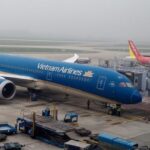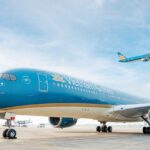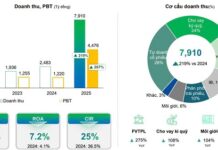Vietnam Airlines to Sell More Shares to Existing Shareholders
On November 30, with 464/464 (100% of attending delegates) in agreement, the National Assembly passed a resolution during its 8th session of the 15th term. The resolution approves solutions to continue supporting Vietnam Airlines to recover and sustainably develop post-COVID-19.
Notably, the resolution allows Vietnam Airlines to sell additional shares to its existing shareholders to increase its charter capital, with a maximum scale of VND 22,000 billion.
In the first phase, the resolution permits the Government to direct the State Capital Investment Corporation (SCIC) to invest in buying shares of Vietnam Airlines on behalf of the State when the airline carries out its plan to increase its charter capital by VND 9,000 billion.
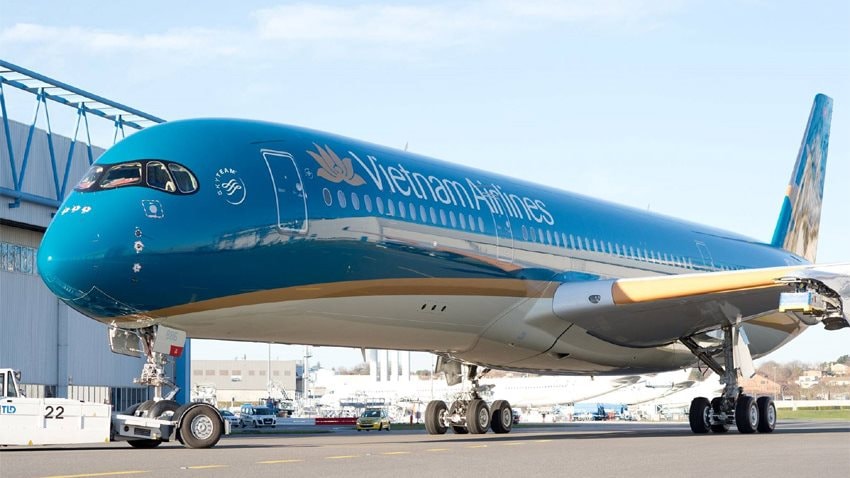
Vietnam Airlines is permitted to sell additional shares to existing shareholders to increase its charter capital.
In the second phase, the resolution approves in principle and authorizes the Government to direct the implementation of a plan (including the State’s transfer of share purchase rights to enterprises) with a maximum issuance scale of VND 13,000 billion.
Significantly, the resolution also allows Pacific Airlines, a subsidiary of Vietnam Airlines, to waive penalty fees and late payment fees on tax debts determined by competent tax authorities, provided that these debts are outstanding as of December 31, 2024.
Pacific Airlines is responsible for paying the full amount of the original tax debt (excluding penalty and late payment fees) before the deadline of December 31, 2024. After this date, the tax authority will calculate late payment fees and take enforcement actions as per regulations. The Government bears full responsibility for the data and content of the proposed plan.
The resolution also clearly defines the responsibilities of relevant agencies and organizations in implementing their commitments to the National Assembly regarding the effectiveness of these solutions. The State Audit Office of Vietnam will perform its assigned tasks according to the National Assembly’s resolutions, including auditing the management and use of state capital and assets in Vietnam Airlines in its 2024-2025 plan.
The Audit Office will also make timely recommendations to competent authorities and Vietnam Airlines to prevent the wastage of state support resources and contribute to enhancing the airline’s production and business performance.
Pacific Airlines Resumed Operations After a Three-Month Hiatus
In April this year, Vietnam Airlines, the parent company of Pacific Airlines, reported that the low-cost carrier’s revenue for 2023 increased by nearly 26% to VND 4,389 billion. However, Pacific Airlines still incurred a pre-tax loss of VND 1,499 billion.
Compared to the previous year, the loss was reduced by over 28%. Cumulatively, from the onset of the pandemic until the end of last year, Pacific Airlines’ pre-tax profit was negative, amounting to more than VND 8,000 billion.
According to Vietnam Airlines, Pacific Airlines’ business results were negatively impacted by the slow recovery of the international market and the failure to achieve the planned growth in domestic passengers. Additionally, the company faced common challenges with other airlines, such as high fuel prices and volatile exchange rates.
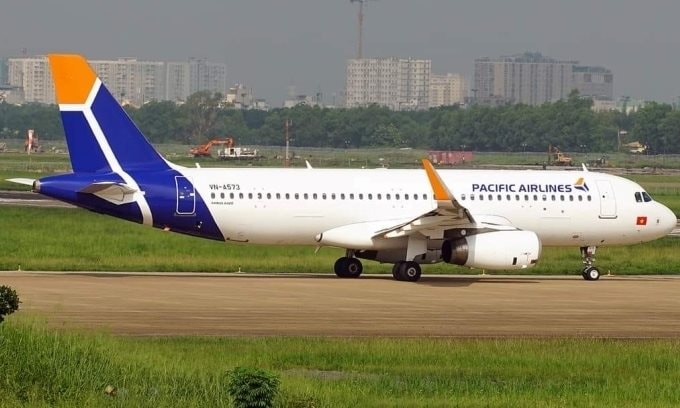
Pacific Airlines is granted a waiver for penalty and late payment fees on tax debts determined by the tax authority until December 31, 2024.
Given this situation, Vietnam Airlines stated that it would continue to implement solutions to coordinate resources, negotiate with suppliers for payment extensions and reductions, and support Pacific Airlines in overcoming this crisis.
Previously, on March 18, Pacific Airlines had to suspend its flights after returning its leased aircraft. The company maintained only ground handling operations at some airports like Tan Son Nhat and Da Nang.
In June this year, Pacific Airlines resumed operations on a few domestic routes, operating a total of 6-8 flights daily. During the peak season, the airline will increase flights between Ho Chi Minh City and Thanh Hoa, Vinh, Hue, and Tuy Hoa.
With this flight schedule, the airline estimates it will operate nearly 1,000 flights, equivalent to more than 180,000 seats during the peak tourist season. The company will operate three Airbus A321 aircraft, two with a 203-seat configuration (8 business class and 195 economy class) and one with 184 seats (16 business class and 168 economy class).
A representative of Pacific Airlines stated that the resumption of operations and these changes are positive results of the company’s restructuring efforts, helping it recover quickly and develop sustainably. Restructuring has proven to be an effective solution for many airlines worldwide to overcome the aftermath of the COVID-19 pandemic.
In this comeback, the airline will upgrade its standards and provide business and economy class services with meal and baggage allowances similar to Vietnam Airlines. Passengers will also enjoy in-flight entertainment and other onboard services, along with the same mileage policy for members as Vietnam Airlines.
Nuclear Power Reboot Approved by Congress, Vietnam Airlines Receives Capital Injection
The National Assembly agrees to continue with the policy of investing in the Ninh Thuan nuclear power project and assigns the Government to urgently direct the allocation of resources for its implementation, in accordance with the conclusions of the competent authorities. This includes researching and proposing amendments to relevant laws, such as the Law on Atomic Energy.
Regarding Vietnam Airlines, the National Assembly approves the plan to offer additional shares to existing shareholders, thus increasing its charter capital by a maximum of VND 22,000 billion.
“Techcombank Weighs Sale of 15% Stake to New Strategic Investor if Foreign Owners Exit”
“Techcombank is on the lookout for a strategic investor with a particular set of skills. We are seeking a partner with advanced technological capabilities and established connections within key trade corridors, including Singapore, Japan, and South Korea. With their expertise, we aim to enhance our digital offerings and expand our reach, solidifying our position as a leading bank in Vietnam and beyond.”
The Heavy Aftermath of Twin Impacts and Vietnam Airlines’ ‘Major Surgery’
The dual impact of the COVID-19 pandemic in 2020 and the unfavorable geopolitical landscape has dealt a severe blow to global aviation, with Vietnam’s aviation industry particularly hard-hit. Vietnam Airlines, in particular, faces a critical juncture; without swift and decisive action to improve its financial position, the airline risks insolvency and a shortage of capital.
Unlocking Vietnam Airlines’ Troubles: A Strategic Approach
On the afternoon of November 25, the National Assembly will hold a discussion on solutions to continue overcoming difficulties caused by the COVID-19 pandemic and enable Vietnam Airlines’ early recovery and sustainable development.



